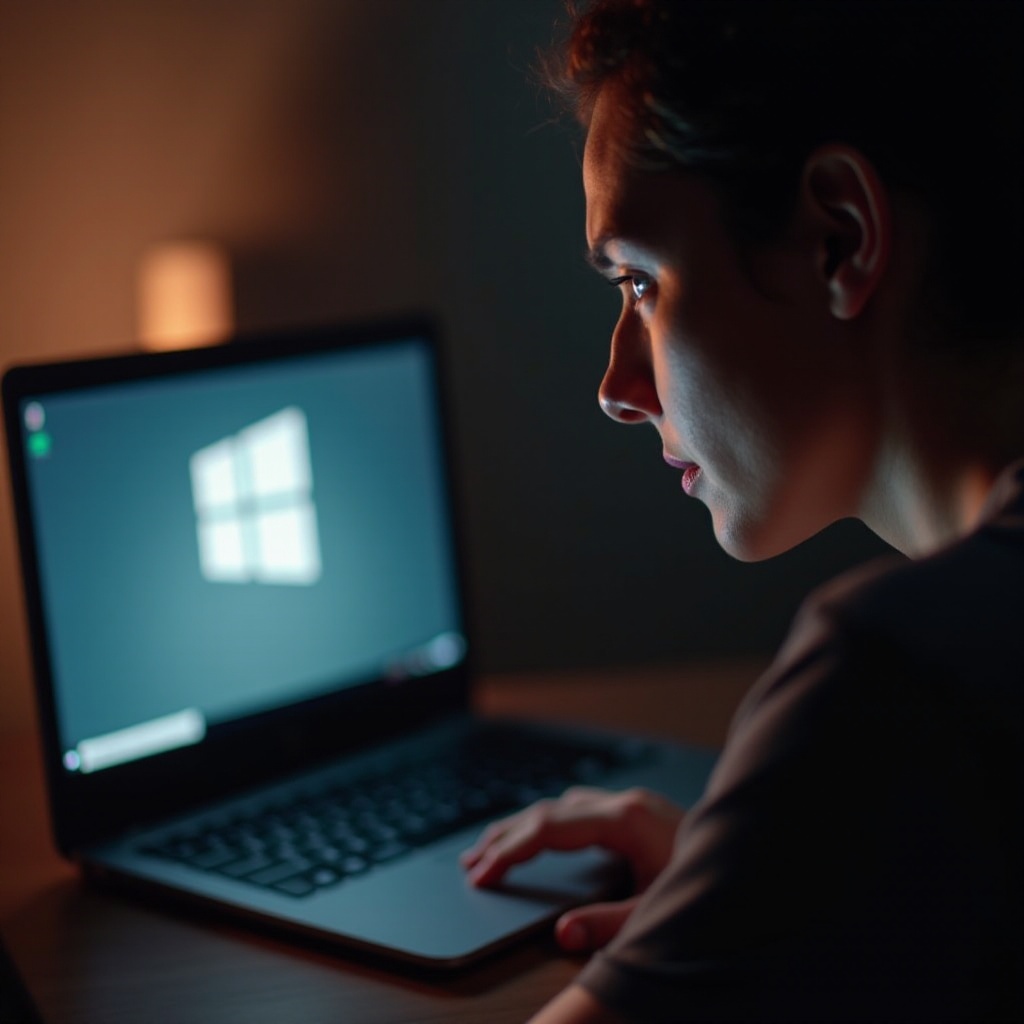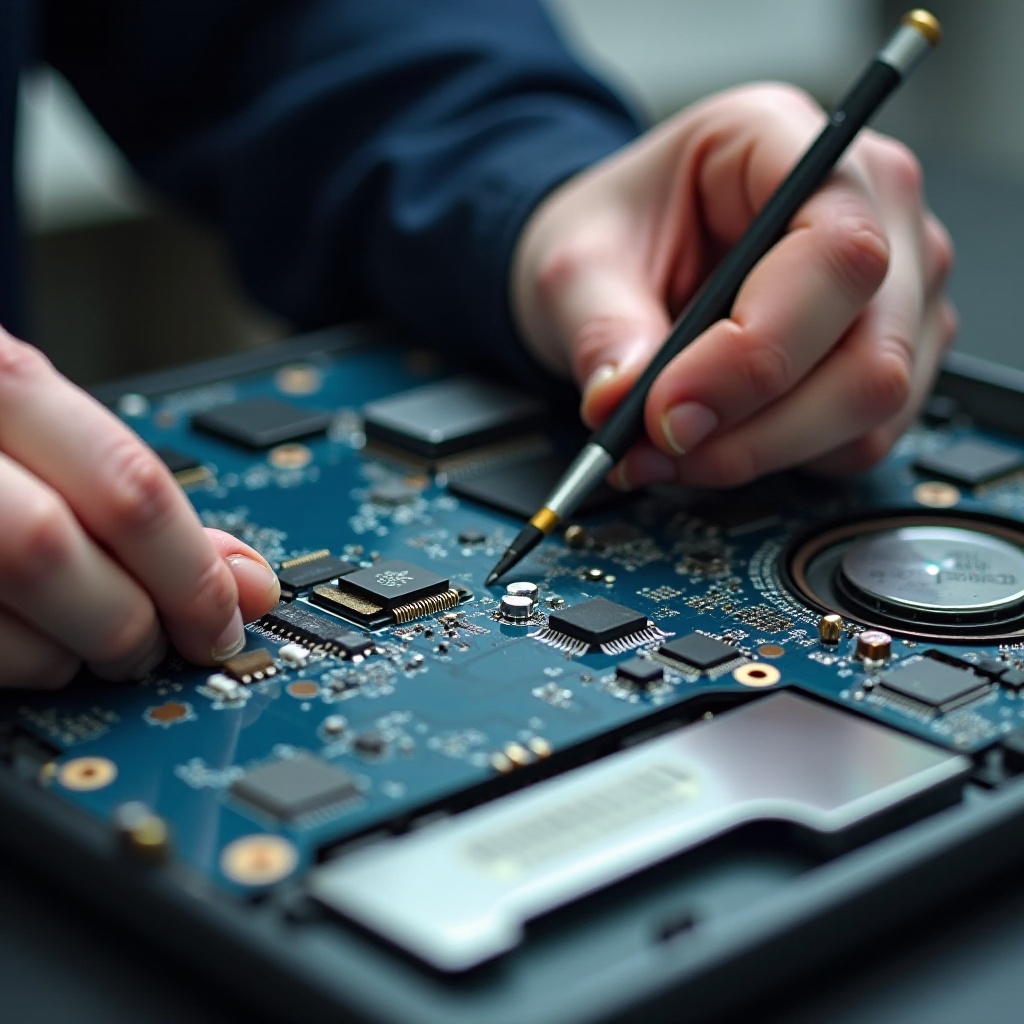Introduction
When your laptop freezes on startup, it can be incredibly frustrating and disrupt your entire day. This common issue can arise from various causes, including hardware malfunctions, software conflicts, or malware infections. Identifying the root of the problem can save you time and money, while also getting your device back to normal functioning. This comprehensive guide will help you understand the reasons behind startup freezes and provide you with step-by-step solutions to resolve the issue.

Common Causes of Laptop Freezes on Startup
Several factors can contribute to your laptop freezing during startup. Understanding these common causes is the first step in diagnosing and fixing the issue.
Hardware Issues
Hardware issues are a common cause of startup freezes. Problems with the laptop's RAM, hard drive, or other internal components can prevent the device from booting up properly.
Software Conflicts
Conflicts between different software applications can also lead to startup freezes. If multiple programs are trying to launch at the same time and conflict with each other, your laptop may lock up.
Driver Problems
Outdated or corrupted drivers can create serious issues, including causing your laptop to freeze at startup. Drivers are essential for the laptop to communicate with its hardware, and any issues can lead to significant problems.
Malware and Viruses
Malware and viruses can wreak havoc on your laptop’s system files, leading to startup issues. A strong, reliable antivirus program is crucial in protecting your laptop from such threats.
Moving from identifying causes, let's look at specific steps we can take to address these startup freezes.
Step-by-Step Troubleshooting Guide
Once you understand the common causes, you can begin troubleshooting your laptop. Follow these steps carefully to resolve most startup freeze issues:
Check for Hardware Issues
Start by examining your laptop’s hardware.
Examining RAM and Storage
- Remove and reseat the RAM modules to ensure they are properly connected.
- Use the laptop’s built-in diagnostic tools to check the health of the hard drive.
Overheating and Cooling Solutions
- Clean dust and debris from the vents and fans.
- Ensure the laptop is on a hard, flat surface to promote proper airflow.
Software and Driver Updates
Keeping your software and drivers up to date can prevent many startup issues.
Checking for Software Updates
- Go to your laptop’s settings and check for any available system updates.
- Install any updates that are available.
Updating or Reinstalling Drivers
- Visit the manufacturer’s website to download the latest drivers for your laptop's hardware.
- Replace any outdated or corrupted drivers.
Scan for Malware and Other Threats
Ensure your laptop is free of malware and viruses that could be causing the startup issue.
Running a Full Antivirus Scan
- Use your antivirus program to run a complete system scan.
- Follow the program's recommendations for removing any detected threats.
Using Malware Removal Tools
- Use specialized malware removal tools to catch any malicious software that your primary antivirus may have missed.
If basic troubleshooting doesn’t resolve the issue, you may need to try more advanced solutions.

Advanced Solutions
Performing a Clean Boot
A clean boot starts Windows with a minimal set of drivers and startup programs.
Steps to Clean Boot Windows
- Press
Win + R, type 'msconfig', and press Enter. - On the General tab, select
Selective startup. - Clear the
Load startup itemscheckbox. - Go to the Services tab, select
Hide all Microsoft services, and then clickDisable all. - Click OK and restart your laptop.
System Restore and Recovery Options
Sometimes, restoring your system to a previous state can resolve startup issues.
Using System Restore
- Go to Control Panel > System and Security > System.
- Click
System protectionon the left panel. - Select
System Restoreand choose a restore point from before the issue began.
Factory Reset as a Last Resort
- Backup your data to an external drive.
- Go to Settings > Update & Security > Recovery.
- Select
Get startedunderReset this PCand follow the instructions.
To prevent future freezes, it’s vital to maintain your laptop regularly.
Preventive Measures
Regularly Updating Software and Drivers
Ensure your operating system and all drivers are kept up to date to avoid compatibility issues.
Using Reliable Antivirus Software
A robust antivirus program will help protect your laptop from malware and other threats.
Best Practices to Maintain Laptop Performance
- Avoid overcrowding your startup programs.
- Regularly clean your system of unnecessary files and applications.
- Ensure proper ventilation and cooling.

Conclusion
Dealing with a laptop that freezes on startup can be frustrating, but following the steps in this guide should help you resolve the issue. Regular maintenance and updates can prevent future problems, keeping your laptop running smoothly.
Frequently Asked Questions
What should I do if my laptop keeps freezing on startup?
If your laptop continues to freeze, try the troubleshooting steps provided in this guide. If the issue persists, consider seeking professional assistance.
Can malware cause my laptop to freeze on startup?
Yes, malware can damage system files and interfere with normal startup processes. Running a full antivirus scan can help identify and remove any threats.
How can I prevent my laptop from freezing on startup in the future?
Regular maintenance, such as updating software and drivers, using a reliable antivirus program, and following best practices for laptop performance, can help prevent startup freezes.
